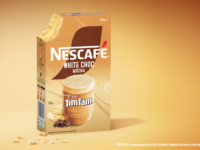 Vegetables can turn to ‘fleece’ for warmth this winter.
Vegetables can turn to ‘fleece’ for warmth this winter.
New research has shown the effectiveness of using commercial frost cloths, known as ‘fleece’ to protect susceptible crops against frost and low temperatures.
The study, conducted by Applied Horticultural Research, aimed to investigate ways for vegetable growers in Victoria, New South Wales and Queensland to protect their crops against extreme weather events without using full protective structures.
“Frost damage to vegetable crops is a severe issue for many vegetable growers, particularly those who are located in the southern and inland areas of Australia,” said AUSVEG spokesperson Dimi Kyriakou.
“Low temperatures can severely impact the growth of winter vegetable crops, reducing the overall quality and yield of the end product, while also prolonging the time to harvest.”
During the study, researchers used commercial frost cloths called ‘fleece,’ which are made of spun bonded polypropylene that acts like a blanket over the crop. The material traps the warmth radiating from the soil, increases the humidity and deflects sinking columns of cold air.
“Many growers choose not to plant crops that are susceptible to low temperatures during winter. However, the use of frost protection materials such as commercial ‘fleece’ may provide an opportunity for growers to address the demand in the market for cold-sensitive crops during the winter period,” said Kyriakou.
“This ‘fleece’ can help young plants to establish more quickly, as it can protect them from wind damage as well as insect contaminants during the coldest months of the year.”
“The researchers suggested that the fleece material could be particularly useful for low-growing leafy crops, as they are the most susceptible to frost and low temperature damage during the winter months.”
“Growers are always looking for ways to produce vegetable crops more productively and cost-effectively. As demonstrated in Europe, these commercial frost cloths are becoming more affordable and easy to apply, while also shortening the overall growth period and time to harvest.”
A detailed article on this research project can be found in the latest edition of Vegetables Australia, an industry funded magazine, which promotes vegetable research and development while keeping growers and stakeholders updated with the latest news.















